Learn about physical exercise benefits in this lesson on reading practice in English with vocabulary in real or authentic context. Watch the embedded video and listen to any word or phrase by selecting the text.
Physical exercise benefits
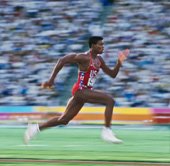
People exercise to keep healthy. They exercise to lose weight or to stay fit. They exercise to make their muscles bigger and stronger. Maybe you play soccer or some other sport for exercise. Getting exercise can be fun and can make you feel good.
Exercise is a big part of staying physically fit. People who are physically fit are alert and full of energy. Exercise can also help people handle stress. Exercise is especially good for children, teens, and older persons.
Not all exercise is the same
There are two main types of exercise: aerobic and anaerobic. Aerobic exercise works big muscles in your arms and legs. Aerobic exercise makes your muscles use oxygen faster than usual. It makes your heart and lungs work harder to supply your muscles with oxygen. Running, walking, jogging, and swimming are kinds of aerobic exercise.

Anaerobic exercise works just a few muscles at a time. Weightlifting is a kind of anaerobic exercise. Weightlifting and other kinds of anaerobic exercise make your muscles bigger and stronger. Anaerobic exercise does not require a lot of oxygen. It does not work your heart or lungs. You can only do anaerobic exercise for short periods of time because the muscles you’re using quickly get tired.
Exercise that helps the heart
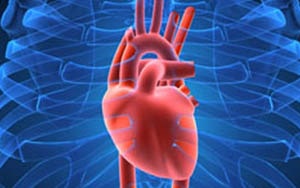
Doctors say that regular aerobic exercise leads to a healthier heart. Jogging, walking, riding a bicycle, and other aerobic exercises lower the risk of heart disease. In one kind of heart disease, fatty stuff called plaque builds up in blood vessels going to the heart. Aerobic exercise helps prevent this buildup. Aerobic exercise also makes the heart and lungs stronger.
Doctors say you should do 20 to 30 minutes of aerobic exercise at least three times a week. You need to exercise hard enough to get your heart beating faster than normal. You can feel your heart beating. Use two fingers to feel a beat, or pulse, in your wrist or neck.
Exercise that increases strength
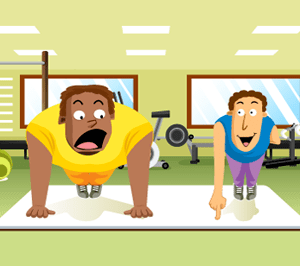
Some kinds of exercise are better at increasing strength than others. Usually people work out with weights if they want to improve their muscle strength. They use free weights, weights that are not attached to anything, such as barbells. Or they use strength-training machines. Strength training can also make bones stronger.
It is a good idea to have a trainer or physical education teacher show you how to lift weights properly. It is important not to injure yourself when lifting weights. Start out with small weights. Try lifting heavier and heavier weights as your muscles get stronger.
Exercise that helps control weight

Aerobic exercise can help you lose weight. It can help you stay at a healthy weight. Aerobic exercise burns calories.
A calorie is a unit of measurement. It measures the amount of energy in foods. It measures the amount of energy your body uses.
When you take in the same number of calories that you burn every day, your weight stays the same. If you take in more calories than you burn, you gain weight. If you take in fewer calories than you burn, you lose weight. Regular exercise helps you burn calories.
Strength training may also help with weight control. Lifting weights burns calories. Lifting weights also makes more muscle in your body. Muscles burn more calories than fat.
Exercise that makes you flexible
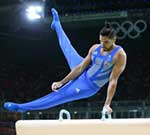
Stretching exercises can make your body more flexible. There are stretches for your arms, legs, neck, and trunk. Many people do slow exercises and stretches called yoga to make their bodies more flexible. A physical education teacher can show you how to do stretches.
You should do warm-up stretches before you do aerobic or anaerobic exercises. You should do cool-down stretches when you are finished exercising. Warm-up and cool-down stretches can help prevent muscle injuries.
Related tags or keywords
- heart disease
- take in
- work out
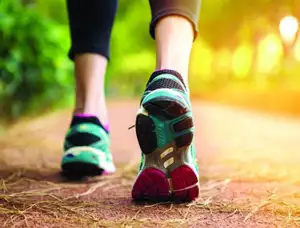

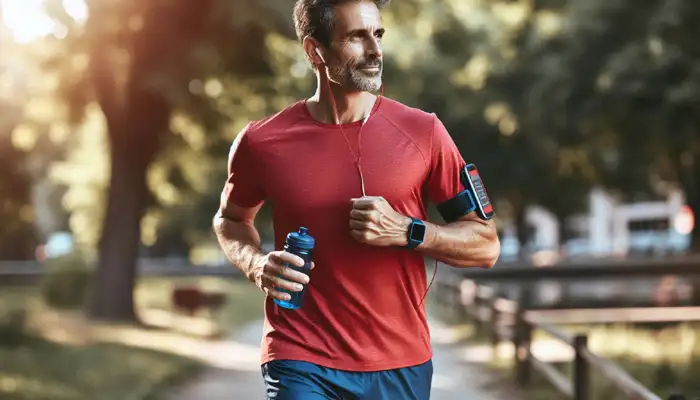

Hi Doctor.
I have a question:
What is the difference between( weigh) and ( weight) as verb?
Hi.
Weigh is always a verb and it means to have a particular weight (noun).
However, weight is both a noun and a verb. The central function of ‘weight’ is noun, though. Examples:
* How much do you weigh? (verb)
* The average weight of babies at birth is around 3 kilograms. (noun)
‘Weight’ can be used as a verb, too, which is really uncommon and it only appears as a phrasal verb, e.g. weight down, which means to twist or distort something to make it more suitable.